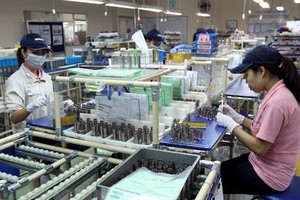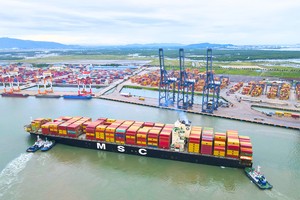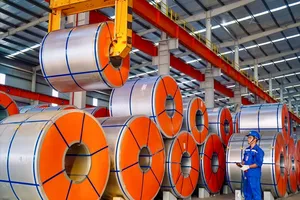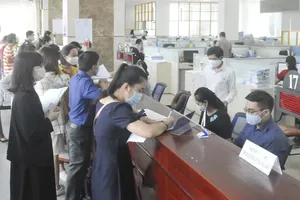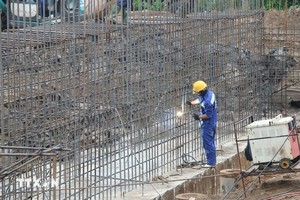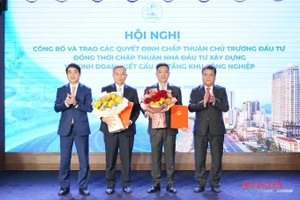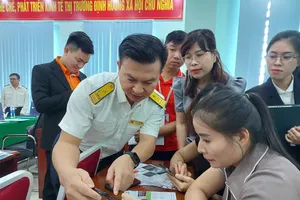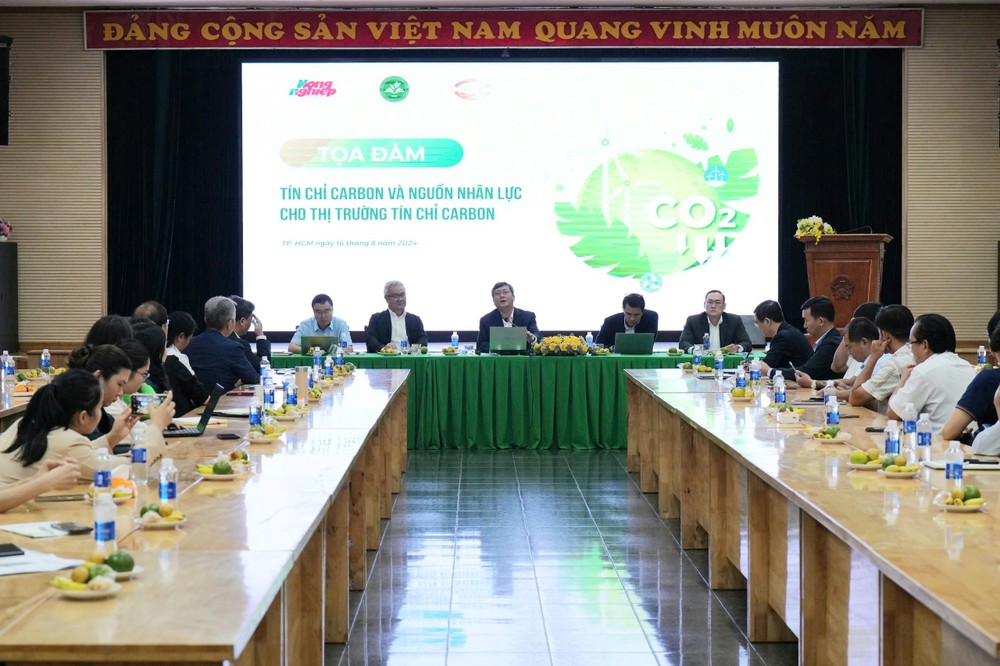
A symposium titled ‘Carbon Credits and Human Capital for the Carbon Credit Market’ was convened this morning by the School of Public Policy and Rural Development (SPPRD), in partnership with the Vietnam Agriculture Newspaper and VOS Holdings Ecosystem Company. The event was designed to delve into the intricacies of the carbon credit market and underscore the critical need for specialized human capital.
The successful transfer of over 10 million carbon credits in 2023 and the generation of a revenue of over US$50 million has solidified Vietnam's position as a frontrunner in the development of a robust carbon credit market. Alongside the government’s efforts to establish a legal framework for the carbon credit market, the concurrent development of a skilled workforce remains a paramount concern.
President of SPPRD Nguyen Trung Dong emphasized that Vietnam's ambitious commitments at COP26 have propelled carbon neutrality to the forefront of the nation's development agenda, with the ultimate goal of achieving net-zero emissions by 2050.
Despite the immense potential of the carbon credit market, its development is fraught with challenges arising from the unique characteristics of different sectors and markets. To address these challenges, targeted training programs are essential to ensure compliance with market-specific regulations and optimize emission reduction capabilities.
In reality, the number of experts in carbon credits remains relatively modest in Vietnam due to the country’s recent entry into this market. Consequently, most resources and relevant technologies are reliant on international sources.
Director Le Hoang The of VOS Information Company stated that Vietnam has approximately 5 billion carbon credits due to its geographical advantage spanning 16 degrees of latitude. Not only does Vietnam possess a large reserve, but it can also develop organic carbon.
Currently, Vietnam requires around 150,000 skilled workers with in-depth knowledge of assessment mechanisms, relevant documentation, reporting, and evaluation of various carbon credits. Training certified carbon assessors with specialized expertise is a crucial link in operating the carbon credit market.
By 2025, Vietnam plans for pilot establishment of a carbon credit trading platform. Consequently, there is an urgent need to train a professional workforce of brokers to participate in this market. The goal is to create a mechanism for exchanging and offsetting carbon credits, which will contribute to the country’s efforts in reducing emissions and promoting sustainable practices.
At the seminar, representatives from the School of Public Policy and Natural Resources, Intertek Vietnam Company and VOS Holdings Ecosystem Company signed a cooperation agreement to train personnel for the carbon credit market. The first-level training program is expected to commence in August this year.
